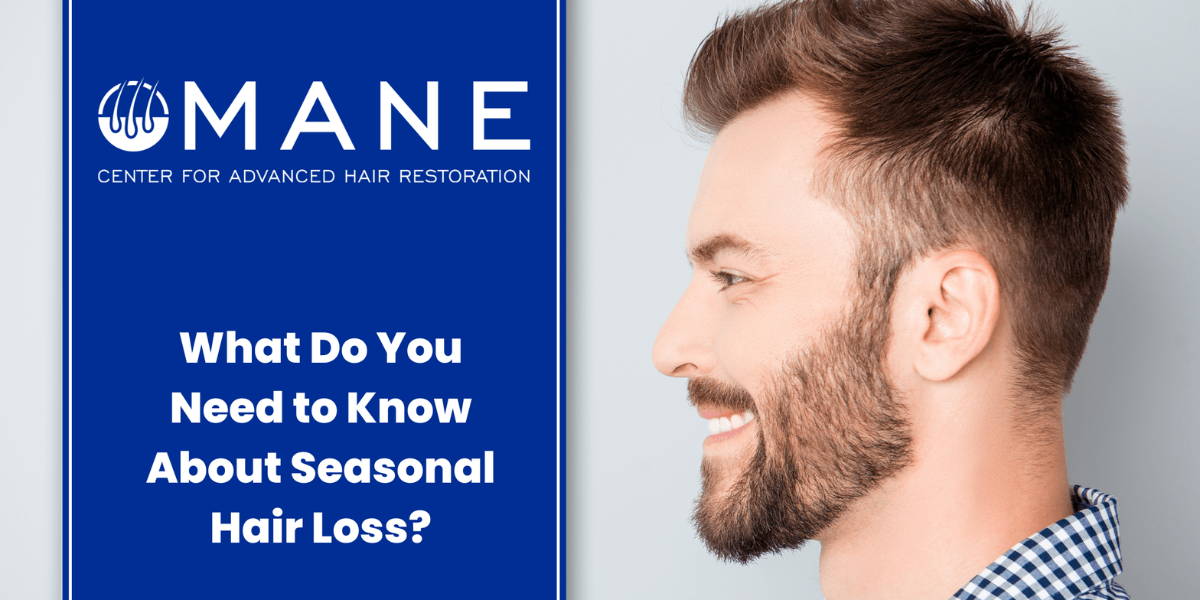


While it is quite normal to lose up to 100 strands of hair every day, losing more than that may indicate you are experiencing hair loss. One can experience hair loss due to aging or autoimmune disorders, but seasons can also cause hair loss. However, you may be struggling to determine whether it is seasonal hair loss or alopecia. Let's discuss how to differentiate between the two.
Several aspects trigger seasonal hair loss. Some of them are as follows:
Hormonal changes can commonly cause seasonal hair loss, especially in women whose hormones fluctuate during stress or around their menstrual cycle.
Stress is a significant factor that can cause hair loss. When stressed, our bodies produce higher amounts of cortisol, which can interfere with the regular production of hormones that affect the growth and health of our hair.
Certain medications, such as those taken for arthritis, can cause hair loss as a side effect.
Nutritional deficiencies, such as iron deficiency, can also cause seasonal hair loss.
Too much exposure to the sun's ultraviolet (UV) rays can damage the scalp and hair follicles, leading to hair loss.
Seasonal weather changes can also play a role in hair loss. Colder temperatures, dry climates, and high humidity levels can all affect your hair's health.
Seasonal hair loss can only last for two to three months. Even in the natural life cycle of hair growth, shedding lasts for three months. So, if you continue to lose hair even after the particular season or the three-month period (whichever comes first), you may have chronic hair loss from other conditions or causes that need to be diagnosed and treated. See Also: FUE vs. FUT: How Are These Hair Transplant Methods Different?
Seasonal hair loss does not cause a noticeable difference in your hair density and will be fixed within a few months. However, with alopecia, you can experience a significant reduction in your hair density either in specific areas or the entire scalp, making your hair appear unhealthy and thin.
You can reverse seasonal hair loss with the following treatment options:
The hair transplant procedure involves extracting hair follicles from a voluminous area called the donor site and implanting them into the balding area. There are two hair transplant procedures available:
Your surgeon will extract hair follicles directly from the donor area (usually the back of the head) of the scalp and then separate them into grafts. They will make small incisions on the recipient area to implant these grafts. As incisions are made, the FUT procedure leaves scarring that takes a few months to heal.
It involves using a small round punch to remove hair follicles from the donor area without causing damage to the scalp. The extracted follicles are grafted to the recipient area and then bandaged for recovery. Those looking to restore their hair without experiencing visible scarring or undergoing lengthy recovery can opt for FUE hair transplants.
During this procedure, artificial hair extensions are implanted in the thinning or balding areas. These artificial hairs are stronger than natural hair so that you can enjoy a natural look with increased hair volume.
It involves drawing a small amount of your blood and spinning it down to separate platelet-rich plasmas. These plasmas are injected into your scalp to promote hair growth.
It does not regrow your hair but creates natural-looking hairlines to cover the balding or thinning spots. This procedure involves depositing tiny pigmented dots on your scalp to mimic the appearance of healthy and voluminous hair with natural definition and depth.
Hair loss can also be treated with medications, including:
These medications can also be recommended even with platelet-rich plasma treatment and hair transplants to stimulate hair growth and maintain transplanted hairs. See Also: How Does Scalp Micropigmentation Work for Hair Loss?
Protect your hair from snow, wind, and rain, as these elements can damage your scalp.
Indoor heating can decrease the moisture content of your hair. However, humidifiers can keep your indoors cooler, thus keeping your hair moist.
Trimming a half inch of your hair every 4-8 weeks helps prevent split ends while stimulating hair growth.
Hot water can wipe out moisture from your hair, making it brittle and susceptible to breakage.
Hair dryers draw moisture out of your hair, making it vulnerable to breakage, so let it dry naturally. Also, ensure your hair is not wet before you leave home, as wet hair is more likely to get damaged than dry hair.
Applying oil will help keep your hair hydrated.
Deep conditioning once a week helps replenish moisture and mitigate the effects of indoor heating, cooler temperature, and styling tools.
At Mane Center for Advanced Hair Restoration, we offer customized yet cost-effective hair restoration treatments for seasonal hair loss. As a leading hair specialist in Chevy Chase, Maryland, Our surgeon, Dr. Douglas Burka, will reverse your hair loss with natural-looking results. Contact us today to restore your hair.